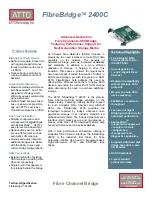
S e n d d o c u m e n t a t i o n c o m m e n t s t o m d s f e e d b a c k - d o c @ c i s c o . c o m
28-32
Cisco MDS 9000 Family CLI Configuration Guide
OL-16184-01, Cisco MDS SAN-OS Release 3.x
Chapter 28 Configuring FICON
FICON Configuration Files
Clearing RLIR Information
Use the
clear rlir statistics
command to clear all existing statistics for a specified VSAN.
switch#
clear rlir statistics vsan 1
Use the
clear rlir history
command to clear the RLIR history
where all link incident records are logged
for all interfaces.
switch#
clear rlir history
Use the
clear rlir recent interface
command to clear the most recent RLIR information for a specified
interface.
switch#
clear rlir recent interface fc 1/2
Use the
clear rlir recent portnumber
command to clear the most recent RLIR information for a
specified port number.
switch#
clear rlir recent portnumber 16
FICON Configuration Files
You can save up to 16 FICON configuration files on each FICON-enabled VSAN (in persistent storage).
The file format is proprietary to IBM. These files can be read and written by IBM hosts using the in-band
CUP protocol. Additionally, you can use the Cisco MDS CLI or Fabric Manager applications to operate
on these FICON configuration files.
Note
Multiple FICON configuration files with the same name can exist in the same switch, provided they
reside in different VSANs. For example, you can create a configuration file named XYZ in both VSAN
1 and VSAN 3.
When you enable the FICON feature in a VSAN, the switches always use the startup FICON
configuration file, called IPL. This file is created with a default configuration as soon as FICON is
enabled in a VSAN.
Caution
When FICON is disabled on a VSAN, all the FICON configuration files are irretrievably lost.
FICON configuration files contain the following configuration for each implemented port address:
•
Block
•
Prohibit mask
•
Port address name
Note
Normal configuration files used by Cisco MDS switches include FICON-enabled attributes for a VSAN,
port number mapping for PortChannels and FCIP interfaces, port number to port address mapping, port
and trunk allowed VSAN configuration for ports, in-order guarantee, static domain ID configuration, and
fabric binding configuration.
















































